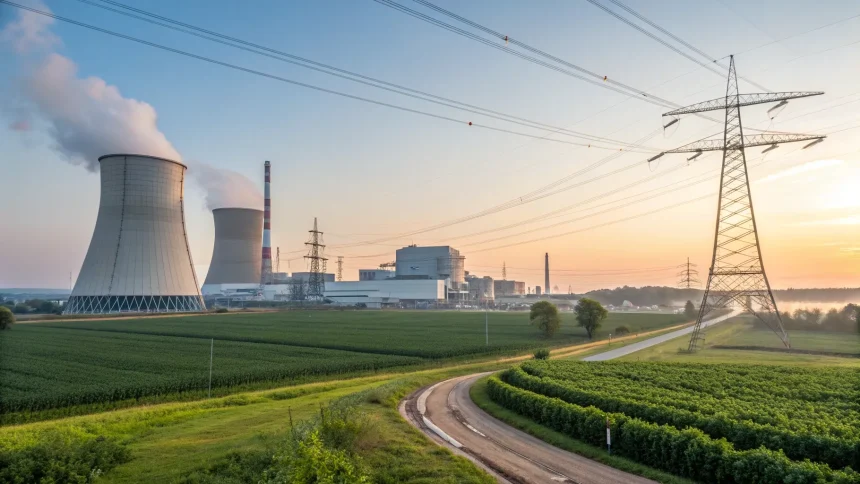Google has reached an agreement to restart an Iowa nuclear power plant, aiming to use its output to power the company’s growing network of data centers. The deal marks a significant shift in how major tech companies are addressing their increasing energy demands while pursuing clean energy goals.
The tech giant’s move to revive a previously shuttered nuclear facility represents one of the most substantial corporate investments in nuclear energy in recent years. This decision comes as data centers, which require massive amounts of electricity to operate, face mounting pressure to reduce their carbon footprints.
Strategic Energy Acquisition
The Iowa nuclear plant, which had been decommissioned, will undergo renovations and upgrades before returning to operational status. Google’s investment will help modernize the facility to meet current safety standards while providing a reliable source of carbon-free electricity.
This arrangement allows Google to secure a consistent power supply for its data infrastructure without the intermittency issues associated with some renewable energy sources like wind and solar. Nuclear power generates electricity 24 hours a day regardless of weather conditions, making it an attractive option for facilities that require uninterrupted power.
“This agreement helps us meet our carbon-free energy goals while ensuring our data centers have the reliable power they need to operate,” a Google representative stated in the announcement.
Tech Industry’s Growing Energy Needs
The deal highlights the enormous energy requirements of modern technology companies. Data centers consume approximately 1-2% of global electricity, with that figure expected to grow as artificial intelligence and cloud computing expand.
Google operates multiple data centers in Iowa, attracted by the state’s relatively low energy costs and central location. These facilities house thousands of servers that process search queries, cloud computing operations, and other digital services.
Energy experts note that the average data center can consume as much electricity as a small town. For companies like Google, finding ways to power these facilities with low-carbon energy sources has become both an environmental priority and a business necessity.
Nuclear Power’s Potential Comeback
The agreement may signal a broader revival for nuclear energy in the United States. Nuclear power, which provides about 20% of U.S. electricity, has faced economic challenges in recent years, with several plants closing due to competition from cheaper natural gas and renewable energy.
However, as companies and governments pursue ambitious climate goals, nuclear power’s status as a reliable, carbon-free energy source has renewed interest in the technology. Several states have implemented policies to keep existing nuclear plants operating, recognizing their value for reducing greenhouse gas emissions.
Environmental groups have expressed mixed reactions to the announcement. Some climate advocates welcome nuclear power’s role in reducing carbon emissions, while others raise concerns about waste disposal and safety.
Financial details of the agreement were not disclosed, but industry analysts suggest the deal likely involves a long-term power purchase agreement that provides the economic certainty needed to restart the nuclear facility.
The revival of the Iowa nuclear plant represents a notable example of how major technology companies are taking direct action to secure clean energy sources rather than simply purchasing renewable energy credits. As data centers continue to multiply across the country, similar arrangements may become more common as companies seek to balance their growing energy needs with environmental commitments.









